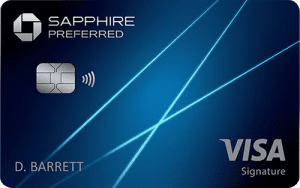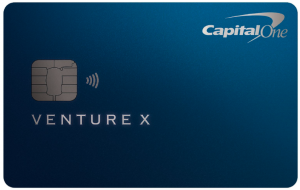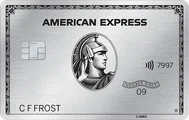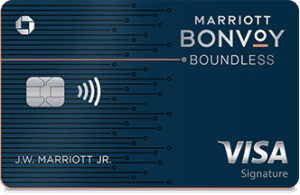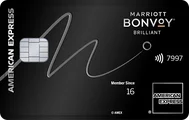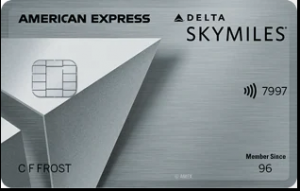Table Of Content
How Travel Credit Cards Work?
Travel credit cards allow you to accumulate points or air miles on your purchases. You can then redeem those points for mostly travel-related categories. This includes:
- Airline tickets
- Hotel rooms
- Hotel restaurants
- Car rentals
- Travel packages
- Cruise tickets
It’s also worth mentioning that many travel cards offer bonus points, such as 2x, 5x, or even 10x, for spending on travel-related expenses. This can be a great way to maximize rewards for frequent travelers.
Additionally, some credit cards come with extra perks, like access to hundreds of airport lounges both in the U.S. and around the world.
Travel Rewards Credit Cards Pros And Cons
Travel rewards credit cards are popular among some consumers because they have several distinct advantages – but also some drawbacks to consider. Here are some of those:
Pros | Cons |
|---|---|
Exotic Travel Perks | Annual fees |
Generous Rewards and Welcome Bonuses | Limited to travel-related categories |
Travel protection |
- Exotic Travel Perks
Annual travel credit, seat upgrades, discounts on food and drinks, free nights at hotels, airport lounge access, TSA precheck, and global entry are just some of the perks you can get with some travel credit cards.
- Generous Rewards and Welcome Bonuses
Many credit card companies allow their clients to earn from 2 to 10 times more points when spending on travel-related items, such as airline tickets, hotels, and car rentals.
- Travel protection
Another advantage of using travel credit cards is that many offer travel protection.
For example, if your flight got delayed or lost your baggage, you might get compensation from your bank or credit card company. In addition to that, credit cards offer some perks as well.
- Annual fees
There are indeed some travel credit cards which has no fees. However, many of them do – and some of them require quite high annual fees.
For example, the The Chase Sapphire Reserve® annual fee is $550 and the Citi / AAdvantage® Executive World Elite Mastercard annual fee is $525
- Limited to travel-related categories
One of the downsides of using travel credit cards is that you can redeem points only for travel-related rewards in many cases.
This means that if you want to earn rewards that you can use at a grocery store or gas station, it might be better to find another type of credit card.
Sign Up for
Our Newsletter
and special member-only perks.
Sign Up for
Our Newsletter
and special member-only perks.
When Does It Make Sense To Get A Travel Card?
There can be several cases where getting a travel rewards credit card might make sense. Here are some of those examples:
- You are a frequent traveler – If you travel often, whether for work or leisure, travel credit cards could be a smart choice. Since you’re already spending on travel expenses, why not earn some rewards while you’re at it? These cards often offer extra points for travel-related purchases, giving you even more value for your money.
- You are saving money for your vacation – Saving money for vacation can be very useful. However, if you are doing this, getting a travel credit card can be helpful since if you gather enough points, you can get a sizable discount on airline tickets and hotels. For example, order flights on the Amex membership club or transfer your Chase Ultimate Rewards points to airline companies.
- You are a loyal customer of a specific airline/hotel network – if you regularly fly the same airline company or visit your beloved hotel network, it may be a good decision to get a travel co-branded card of the network. The best hotel credit cards provide free nights, upgrades, and many other benefits.
When To Get a Travel Card? | When To Skip a Travel Card? |
|---|---|
You are a frequent traveler |
You want to redeem points for non-travel categories |
You are saving money for your vacation | You do not travel that often |
You are a loyal customer of a specific airline/hotel network |
When It May Not Make Sense To Get A Travel Card?
Travel credit cards might not be the best choice for everyone. Here are some of the situations where it might not be that useful:
- You want to redeem points for non-travel categories – If you're going to redeem your points for clothing stores, grocery stores, or some other non-travel category, then getting a travel card might not be the best choice. In this case, the better approach will be if you get a cashback or points card that offers rewards for the categories you are interested in.
- You do not travel that often – If you do not travel much, then all those rewards discussed above might simply be useless. In fact, with many travel credit cards, points can expire within 2 to 3 years. So if you are not that interested in traveling, it might be better to get a credit card, which offers such rewards that you can use.
How To Get a Travel Rewards Credit Card?
If you think that after all those considerations travel credit card is the right thing for you, then there are some steps to take to get a travel rewards credit card of your choice:
- Researching cards – The first obvious step is to search for travel cards that suit your needs. This depends on individual priorities. For example, some people prefer to have a card with no annual fee. For example, the Bank of America Travel Rewards Credit Card has no annual or foreign transaction fees. On the other hand, some people prefer cards with large welcome bonuses. So, in this case, you can choose the one which works for your best.
- Checking requirements – Before applying for a card, it is important to check for requirements. If you just send several applications without consideration, you can end up being denied and your credit score lowered. You can also ask for pre-approval, in which case you can get a response from a bank that will not affect your score.
- Applying for a card – You can apply for a credit card at the bank branch via online or mobile banking applications. You can apply by mail in most cases, but this option takes much more time and might not be the most efficient solution. After some time, the bank will give you a response.
- Activate a card – Even if you get approved and get your card via mail, it is usually required for you to activate the card before you can use it. You can call customer service, where they will help you with the steps you need to take to activate the card.
Card | Rewards | Bonus | Annual Fee | Chase Sapphire Preferred® Card | 2X – 5X
5x total points on travel purchased through Chase Travel, 3x points on dining, online grocery purchases and select streaming services. 2x on other travel purchases. Plus, earn 1 point per dollar spent on all other purchases.
| 60,000 points
60,000 bonus points after you spend $4,000 on purchases in the first 3 months from account opening
| $95
| Review |
|---|---|---|---|---|---|
Capital One Venture X Rewards | 1X – 10X
10 miles per dollar on hotels and rental cars when booking via Capital One Travel, 5 miles per dollar on flights and 2 miles per dollar on all eligible purchases
| 75,000 miles
75,000 bonus miles once you spend $4,000 on purchases within the first 3 months from account opening
| $395 | Review | |
American Airlines AAdvantage MileUp℠ Card | 1X – 2X
2 AAdvantage miles per dollar on grocery stores and eligible American Airlines purchases, and 1 mile per dollar on other purchases
| 15,000 miles
15,000 miles if you spend $500 in first 3 months
| $0 | Review | |
The Platinum Card® from American Express | 1X – 5X
5X points on up to $500,000 spent on directly-booked airfare and flights and prepaid hotels booked through American Express Travel (per calendar year), 2X points on prepaid car rentals through American Express Travel and 1X points on all other purchases
| 80,000 points
80,000 Membership Rewards® points after you spend $8,000 on purchases on your new Card in your first 6 months of Card Membership
| $695 (Rates & Fees) | Review | |
Marriott Bonvoy Boundless® Credit Card | 1x – 6X
6X points for every $1 spent at over 7,000 hotels participating in Marriott Bonvoy® with the Marriott Bonvoy Boundless® credit card. Plus, earn up to 10X points from Marriott for being a Marriott Bonvoy® member. Plus, earn up to 1X point from Marriott with Silver Elite Status. Earn 3X points for every $1 on the first $6,000 spent in combined purchases each year on grocery stores, gas stations, and dining. Earn 2X points for every $1 you spend on all other purchases.
| 125,000 points
Earn 125,000 Bonus Points after you spend $5,000 on purchases in your first 3 months from your account opening.
| $95 | Review |
Travel Credit Card Alternatives
If you do not want a travel credit card, there are some alternatives for you to use when traveling abroad. Here are two possibilities to consider:
- Airline Mile Cards – Those are co-branded travel credit cards. One example of this is Delta SkyMiles Gold American Express Card, which offers 2X miles on delta purchases, at restaurants worldwide (including take-out and delivery in the U.S) and at U.S. supermarkets, and 1x miles on all other eligible purchases. You can redeem those bonus miles for Delta airlines trips and other rewards.
- Hotel Credit Cards – This is another type of co-branded travel credit card. The Hilton Honors Card by American Express is one example of this, which offers 7X Hilton Honors Bonus Points for each dollar of eligible purchases charged directly with hotels and resorts within the Hilton portfolio, 5x points at U.S. restaurants (including takeout and delivery) U.S.supermarkets, U.S. gas stations and 3x points for each dollar on other eligible purchases . As the name suggests, you can redeem those points for hotel nights at Hilton as well as for other rewards.
FAQs
Travel credit cards can usually be used internationally. However, there are some exceptions since there are still some countries and cities where some cards are not accepted. Make sure to use it smartly when traveling abroad.
Generally, Visa and MasterCard cards are more widely accepted than American Express and Discovery cards. However, those companies are working on expanding their global presence.
Suppose you have a bad credit rating if you still have a chance to get a travel credit card. The fact is that some banks issue travel credit cards for people with poor or average credit ratings.
However, getting approved for a secured credit card is generally easier than getting regular credit cards. This card has no annual fee and has some travel-related rewards available as well.
If you have enough credit card points or air miles, then in some cases, you can redeem them for free hotel nights. For example, with the Hilton Honors American Express card, free nights can be redeemed for as few as 5,000 points per night and no more than 95,000 Points per night for a standard room.
In addition, with some travel credit cards, you can get one free night per year. However, this usually applies to luxury credit cards with hefty annual fees.
Travel credit card flight miles are somewhat similar to points. The main idea is that you can exchange them for free flights if you have enough miles.
For example, if you use Capital One Travel, one mile has a value of 1 cent, $0.01. However, with some cards, you can redeem your miles for better value than that rate, depending on the rewards.
The simplest way to use credit card points for flights is to check the redemption options offered by your bank or credit card company online or through mobile banking applications.
You can also read some specific guides that provide info on how to use United miles for flights, how to use Chase Ultimate Rewards points for flights etc
If you have accumulated enough credit card miles, you can exchange them for a free flight on your credit card issuer travel portal.
With some banks and credit card companies, you can use miles for hotel and restaurant rewards.

